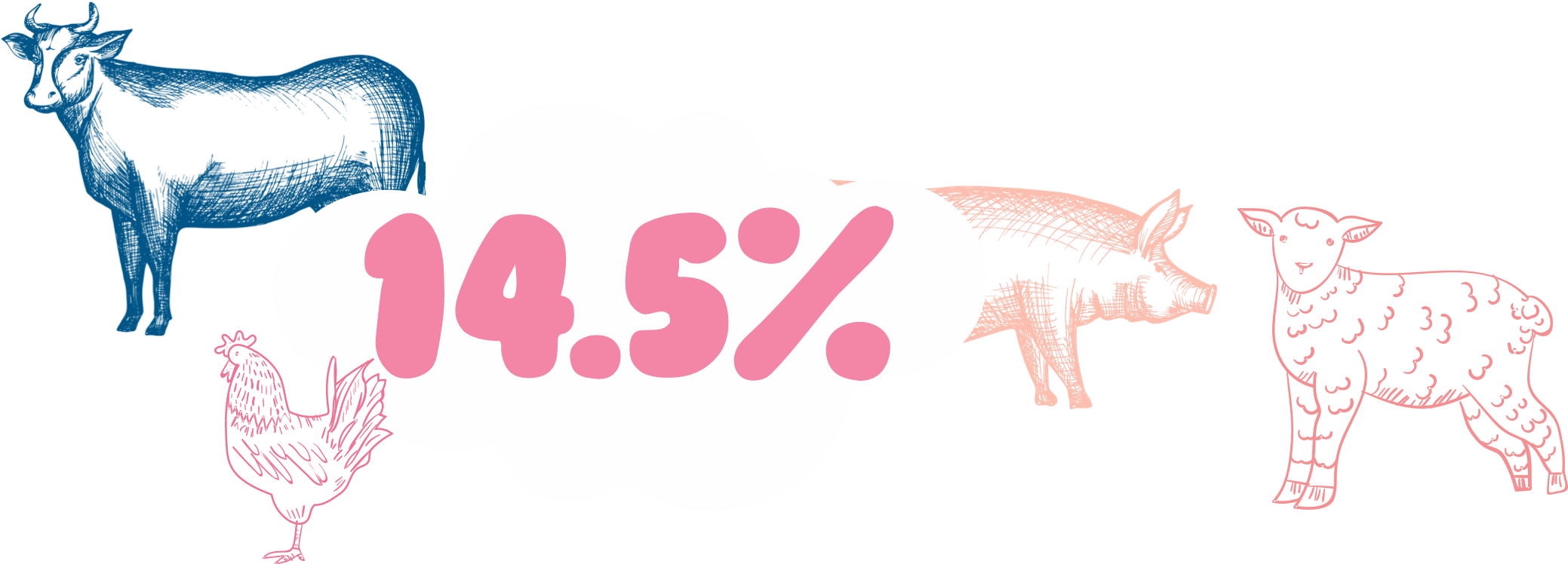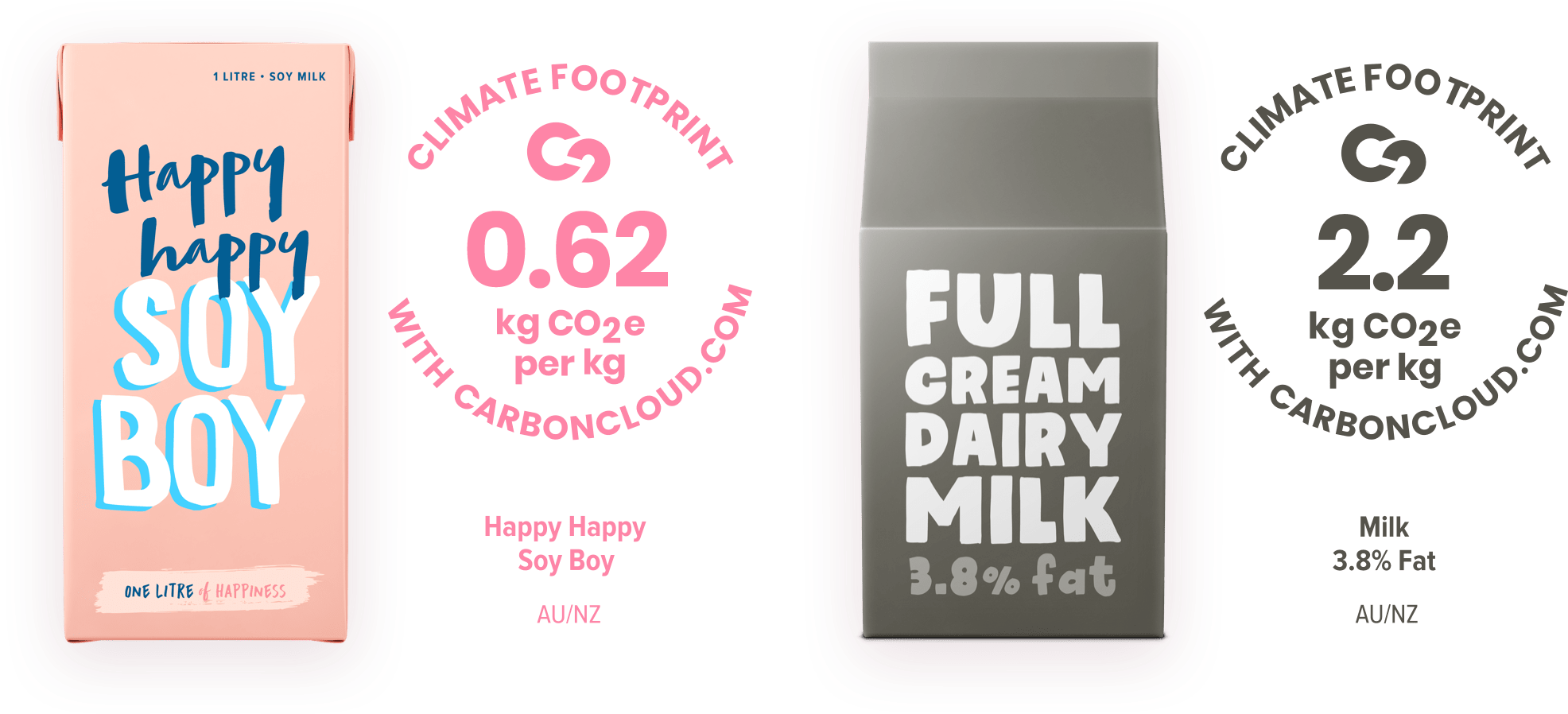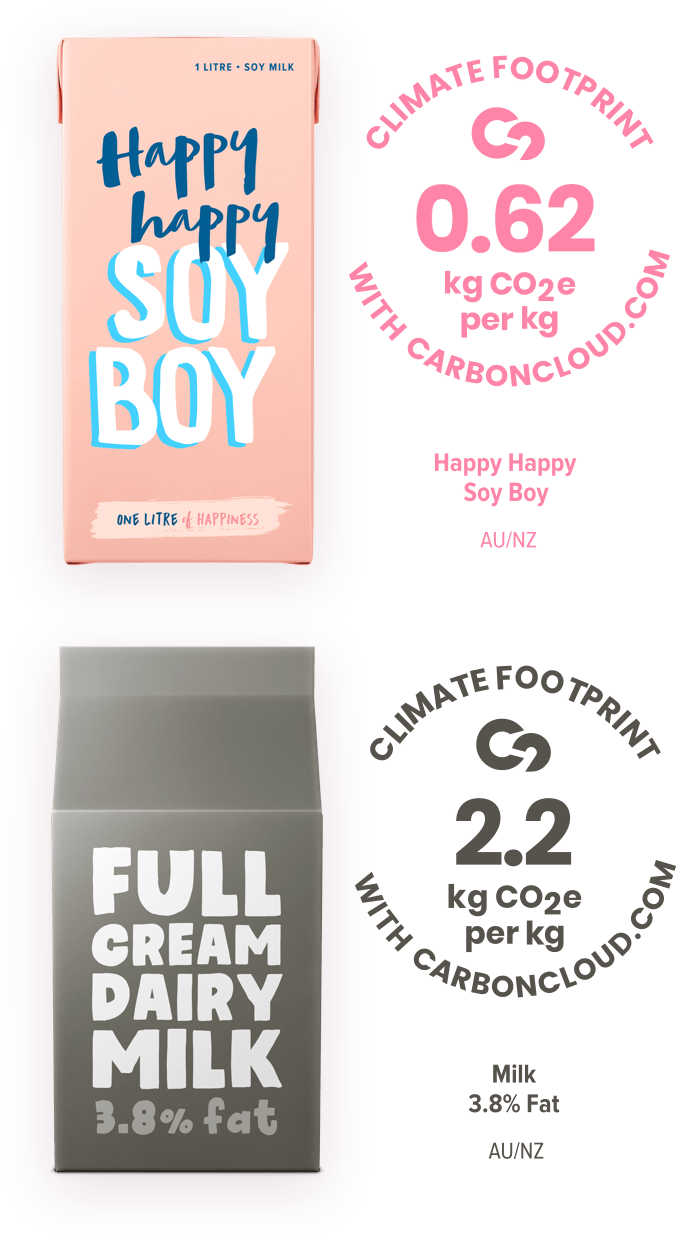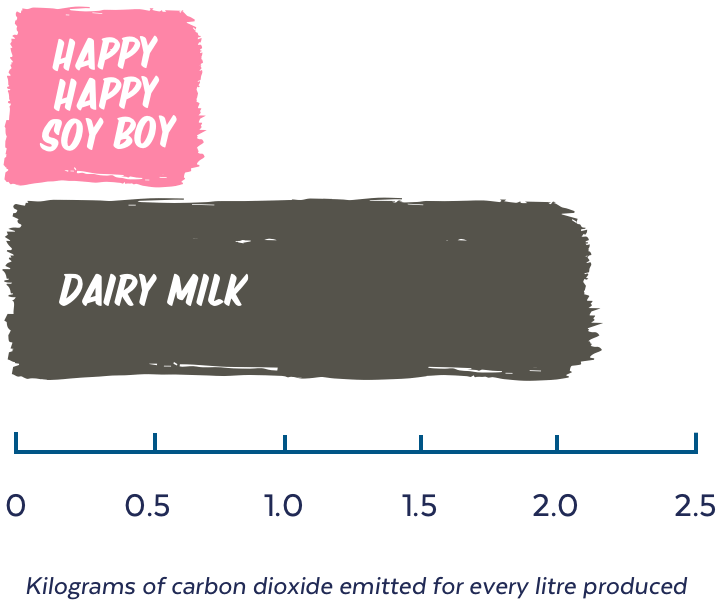Footprints, impacts, emissions, it can all seem overwhelming. Where to start?

Put simply, global emissions come from a range of sectors and processes. As a result, there is no single solution that is sufficient in tackling climate change. Many solutions are required to limit our environmental impact.

Recent research has highlighted that the food sector demands immediate, focused mitigation efforts.
An agricultural report published by the UN has revealed that industrial livestock, including dairy production, contributes to at least 14.5% of human-induced greenhouse gas emissions.

Current food production practices are depleting resources and threatening natural ecosystems, while our generated emissions continue to drive global warming.
The good news is that, as individuals, we have the power to enact change by choosing lower impact products and lifestyles.

Let’s take an example. Happy happy Soy Boy’s climate footprint of 0.66 CO2e per kg for Australia and New Zealand means that 0.66 kilograms of carbon dioxide were emitted for every litre produced. Compare this with dairy milk (3.8% fat, the Australian average), which has a climate footprint of 2.2 CO2e per kg.




Evidence supports the importance of dietary change to reduce greenhouse gas emissions and our overall environmental impact. The situation is urgent and the facts are clear, plants are the answer.
https://carboncloud.com/2023/01/03/happy-happy-foods/
https://www.fao.org/3/i3437e/i3437e.pdf
Happy Happy Foods Pte Ltd engaged CarbonCloud, a global leader in environmental footprinting, to undertake a comprehensive study to determine the carbon footprint of all of our products. All available relevant data has been provided to Carbon Cloud to undertake its calculations for our products. We believe that CarbonCloud has taken all reasonable steps to ensure the accuracy of these calculations.
CarbonCloud has independently obtained data and calculated the footprint of dairy milk products around the world, including Australian 3.8% fat dairy milk (the Australian average, as stated by Dairy Australia*) . CarbonCloud’s methodologies are underpinned by the specifies principles, requirements and guidelines for the quantification and reporting of the carbon footprint of a product as outlined in ISO 14067 (https://www.iso.org/standard/71206.html) and the GHG Protocol Product Life Cycle Accounting and Reporting Standard (https://ghgprotocol.org/). The climate footprints printed should be interpreted as a guide to the expected carbon emissions of each product. As production, processing, packaging and transport scenarios are variable, these numbers are subject to change and variation.
Happy Happy Foods Pte Ltd, and its subsidiaries, take no responsibility for the accuracy of climate footprints supplied by CarbonCloud.
*Information correct as of date of publication, 18/01/23